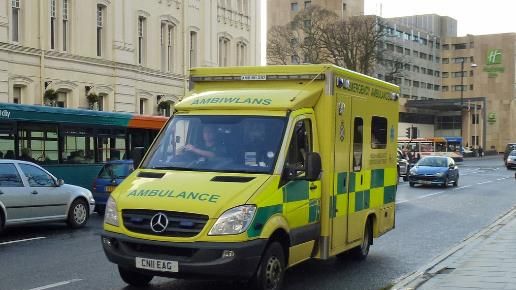
Press release -
New research links stroke death risk with cost of economic downturns
Unemployment and reduced government healthcare spending are factors which could put people at higher risk of dying from stroke. These are the latest findings from a worldwide study presented at the 2014 UK Stroke Forum, hosted by the Stroke Association.
Researchers at Imperial College London used data from 99 countries over a 28 year period to investigate the link between economic crises and mortality due to stroke(i). The results provided the following findings;
- Increases in unemployment were associated with significant rises in mortality due to stroke(ii).
- Rises in government healthcare expenditure were associated with significant reductions in cerebrovascular disease mortality
- These associations maintained even when controlling for changes in gross domestic product per capita, inflation, interest rates, urbanisation, nutrition, education and out-of-pocket spending
Stroke is the second biggest cause of death in the world, and the condition takes a life every five seconds. In the UK, stroke kills more than 40,000 people every year.
Alun Davies, Professor of Vascular Surgery at Imperial College London, said: “In recent years, the global population has faced a major economic crisis, with several countries experiencing increased unemployment rates and reduced funding for healthcare. Our findings indicate that this could have had a significant impact on our health - specifically cerebrovascular disease, through reduced access to emergency medical treatment, for example.
“The results also link rising unemployment rates with a higher risk of death from cerebrovascular disease. There are a range of possible reasons for this, for example, stress can lead to higher blood pressure, which is a key controllable risk factor for stroke.”
Joe Korner, Director of External Affairs at the Stroke Association, said: “This analysis is the first to look at whether there is a connection between the number of people dying from stroke and economic downturns. Its findings suggest that the cost of a recession could be people’s lives.
“In recent years, we’ve seen important strides in the way stroke is treated as a medical emergency. However, it’s clear that health service cuts could limit emergency care available to thousands of people, putting them at increased risk of death following a stroke.
“It is also extremely concerning that unemployment could put people in danger of dying from stroke. These latest figures could bring us closer to identifying the factors that leave unemployed people at increased risk of death following a stroke, such as high blood pressure, for example.”
The UK Stroke Forum is hosted by the Stroke Association and is a coalition of over 30 organisations committed to improving stroke care in the UK. It aims to bring together healthcare professionals in stroke annually to meet and share ideas to conquer stroke, and also enables patients to meet stroke professionals and help shape future services.
For more information about the Stroke Association, visit: www.stroke.org.ukor call 0303 303 3100.
Ends
For further information please contact the Stroke Association press office on: 020 7566 1500/ press@stroke.org.uk
For urgent out of hours media enquiries only please call 07799 436 008. ISDN facilities available.
Notes to editors:
- (i) Cerebrovascular disease, classified under the International Classification Diseases codes as haemorrhagic stroke, cerebral infarction, transient cerebral ischaemic attack, cerebral aneurysm, cerebral atherosclerosis, other cerebrovascular disease and sequelae of cerebrovascular disease
- (ii) Cerebrovascular disease, classified under the International Classification Diseases codes as haemorrhagic stroke, cerebral infarction, transient cerebral ischaemic attack, cerebral aneurysm, cerebral atherosclerosis, other cerebrovascular disease and sequelae of cerebrovascular disease
About Imperial College London:
- Imperial College London is one of the world's leading universities. The College's 14,000 students and 7,500 staff are expanding the frontiers of knowledge in science, medicine, engineering and business, and translating their discoveries into benefits for society.
- Founded in 1907, Imperial builds on a distinguished past - having pioneered penicillin, holography and fibre optics - to shape the future. Imperial researchers work across disciplines to improve global health, tackle climate change, develop sustainable energy technology and address security challenges. This blend of academic excellence and its real-world application feeds into Imperial's exceptional learning environment, where students participate in research to push the limits of their degrees.
- Imperial nurtures a dynamic enterprise culture, where collaborations with industrial, healthcare and international partners are the norm. In 2007, Imperial College London and Imperial College Healthcare NHS Trust formed the UK's first Academic Health Science Centre. This unique partnership aims to improve the quality of life of patients and populations by taking new discoveries and translating them into new therapies as quickly as possible.
- Imperial has nine London campuses, including Imperial West: a new 25 acre research and innovation centre in White City, west London. At Imperial West, researchers, businesses and higher education partners will co-locate to create value from ideas on a global scale.
Topics
Categories
A stroke is a brain attack which happens when the blood supply to the brain is cut off, caused by a clot or bleeding in the brain. There are around 152,000 strokes in the UK every year and it is the leading cause of severe adult disability. There are over 1.2 million people in the UK living with the effects of stroke.
Stroke Association is a charity. We believe in life after stroke and together we can conquer stroke. We work directly with stroke survivors and their families and carers, with health and social care professionals and with scientists and researchers. We campaign to improve stroke care and support people to make the best recovery they can. We fund research to develop new treatments and ways of preventing stroke. The Stroke Helpline (0303 303 3100) provides information and support on stroke. More information can be found at www.stroke.org.uk










